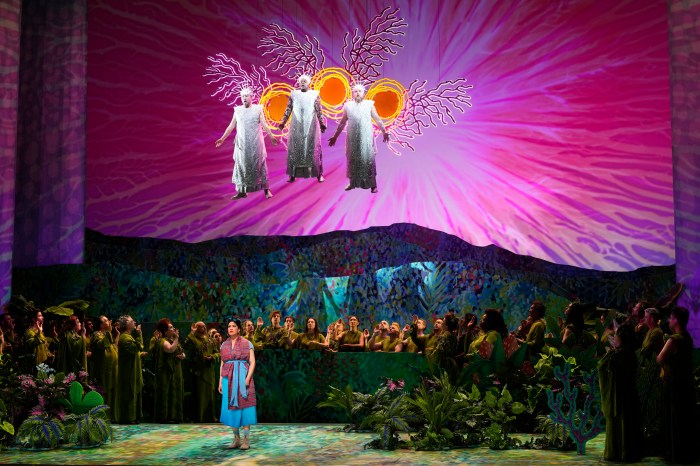Some of the best jazz albums of the past few years came from one marathon session in 2012, when members of the Los Angeles collective The West Coast Get Down recorded 170 songs in 30 days. It’s where Kamasi Washington’s “The Epic,” widely recognized as one of the top albums of 2015, was born, as were records from pianist Cameron Graves and drummer Ronald Bruner Jr. And it was here where Miles Mosley, one of the most innovative upright bassists working today, put together his debut album, “Uprising.”
We caught up with Mosley as the founding member of the West Coast Get Down prepares for a pair of shows in New York to talk about how “Uprising” came to be, how his style differs from those of his colleagues, and what he calls “one of the most versatile instruments in the world.”
“Uprising” has such a variety of styles — some jazz, some ’70s funk, some straight-up pop. How much of that was intentional?
It’s the sum of my influences. As much as I’ve studied jazz and classical music, I was also a kid that was really into grunge music, and I was a mixed-race kid raised in Los Angeles in the ’90s at the peak of the hip-hop scene. All of these things meld together. To me, the song is king, and I respect the idea first. I want the song to sound like what it wants to be, rather than some sort of war room strategy. … It’s in the nature of jazz and soul to respond to the styles of music that circle around it.
The West Coast Get Down has, as a collective, garnered a lot of attention in the past couple of years. How important is it to you to have a chance at that frontman role?
It’s always been important to me that I be a frontman for the purposes of moving my instrument forward, bringing something new to the upright bass, bringing the rhythm section to the front of the band. That’s something I’ve always enjoyed — contributing to the amazing bass players that have brought it to the front of the stage. And as a songwriter, to be able to use words to connect with people, to assist them with processing complicated ideas … it’s a wonderful feeling.
Upright bass is an interesting instrument in which to specialize in 2017. What draws you to it?
I feel like have something to say on the upright that hasn’t been said before, that I have something to contribute to the instrument that has sounded the same for 500 years. It’s been played by the great masters, and harmonically it’s been pushed beyond its limits by my heroes. However, it sounded the same. So as soon as I was able to unlock the ability of connecting effects, to bring that to the tapestry in an elegant way, I think the upright bass becomes one of the most versatile instruments in the world. It can at once be as we know it, but if you pull out the bow, move it an octave down and add distortion, all of a sudden it sounds like a Moog, with all of these crazy synthesizer sounds … It has a lot of preconceived notions attached to it. There’s a lot of cartoons out there with cats playing the upright bass.
And while that style of playing is part of the history of the instrument, it can be cool and sexy and angry and ferocious as well.
IF YOU GO: Miles Mosley performs as a part of BRIC JazzFest on October 19 at 7:30 p.m. at BRIC House, 647 Fulton St., Brooklyn, 718-683-5600, $25. He also performs on October 20 at 8 p.m. at Le Poisson Rouge, 158 Bleeker St., 212-505-3474, $18-$22.

















